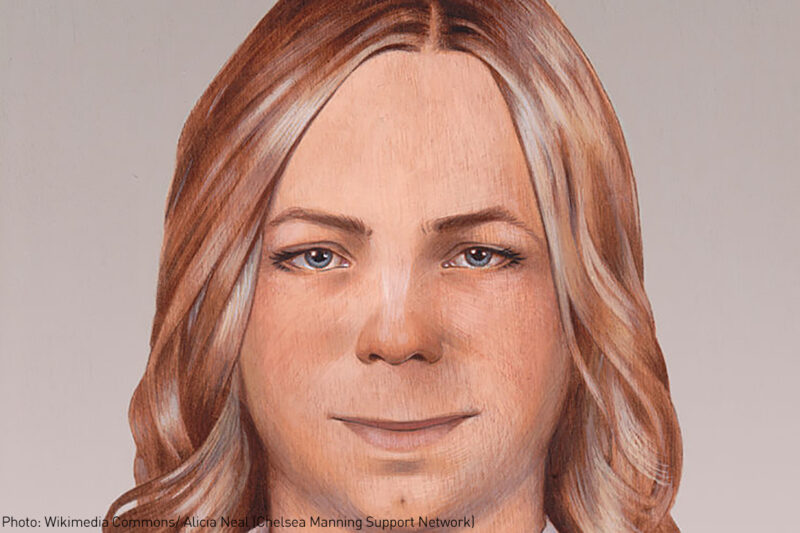
Whistleblower. Traitor. Transwoman. Freak. Hero.
Chelsea Manning has been called many things and is recognizable to many.
She has informed the public of United States military activities across the globe and continues to speak out against government secrecy and in defense of transgender rights. Her words and actions have powerfully transformed national conversations, but since her in 2010 on charges related to her release of information to WikiLeaks, few have had a chance to actually see and hear from Chelsea herself.
Today, Chelsea is telling her story through an Amnesty International podcast. You can listen .
“I feel like I've been stored away for all this time without a voice,” she says through the voice of transgender actress , who sounds eerily like Chelsea. “I feel like there's so much of a contribution to society that I could be making. I spend every day looking forward to the hope that one day I can give that a go.”
During the podcast, Chelsea recounts her early childhood and young adulthood struggling with her gender and homelessness. She talks about her decision to enlist in the military in October of 2007 as well as her arrest and brutal torture while in confinement at Quantico. She finishes up her story describing her incarceration at the Disciplinary Barracks at Fort Leavenworth. The story is in Chelsea’s own voice, with the earnest thoughtfulness that I have come to appreciate as quintessentially Chelsea.
As her lawyer, I am one of a few people who can speak to and visit Chelsea. I have had the privilege of hearing her voice and learning about the strong and resilient person that is behind the many public narratives and labels. With today’s podcast, Chelsea hopes to share that side of her with others. Even though she is not permitted to use her actual voice, having another trans woman tell her story was critical to her as she continues to try to build human connections beyond the prison walls.
At the end of the podcast, Chelsea reflects on her younger self:
“I've … imagined a few times what it would be like if I could travel back in time and speak to myself as a teenager. I know what she was feeling deep down inside. I know all the fears that she had, and all the vulnerabilities she was hiding. I would want to grab her by the hand and tell her that everything is going to be okay. I would tell her that there is nothing wrong with you, and that you are more loved and appreciated than you realize. I would tell her that she can be a happier and healthier person if she stays true to herself, like I have finally been able to figure out.”
One of the amazing things about Chelsea is her ability to find beauty and love, even in the most desperate circumstances. It comes through in her story and leaves you hopeful for a more just world — a world where we can break down the isolation and violence of incarceration and build up the humanity and decency of our fellow human beings.

